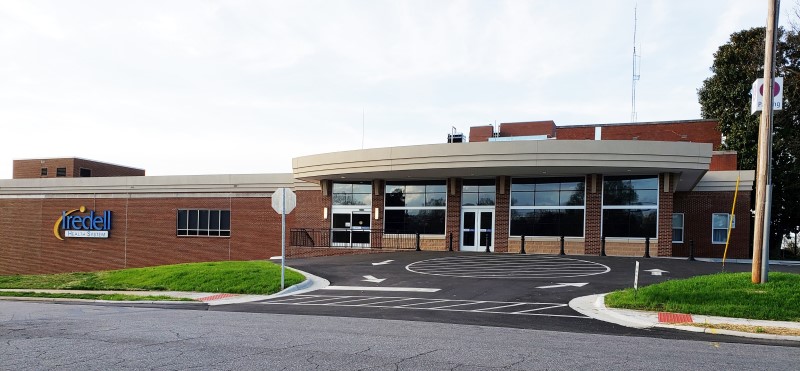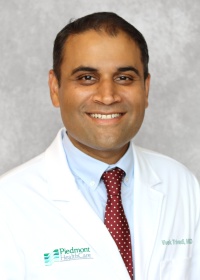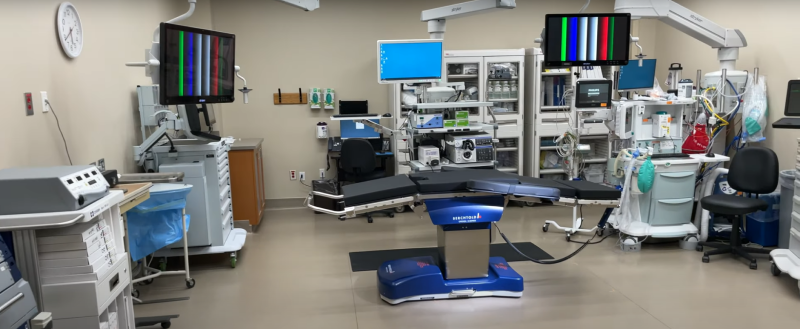
Special to Iredell Free News
When your doctor tells you it’s time to get your first colonoscopy, your initial thoughts may be those of worry and apprehension. Though you may be dreading your procedure, colonoscopies save lives — they’re not as bad as you think.

“Colorectal cancer is the third most common cancer in both men and women and second most common cause of cancer deaths in the United States. Yet, with the help of a colonoscopy procedure, it is one of the most preventable types of cancer,” said Dr. Vivek Trivedi, gastroenterologist with Piedmont HealthCare.
As National Colorectal Cancer Month comes to a close, take time today to learn what to expect from a potentially life-saving colonoscopy.
What is a colonoscopy?
A colonoscopy is a medical procedure that can detect abnormal growths, or polyps, and remove them before they turn into cancer. It is the only test that can both find and prevent cancer.
“A colonoscopy is an essential tool for preventing colorectal cancer because we can resect and remove abnormal growths or polyps from the colon at an early age and an early stage,” said Trivedi.
According to Trivedi, colorectal cancer is preventable in nearly all cases through proper screening.
When should I get a colonoscopy?
Since polyps can become cancerous in 5 to 10 years, proper screening is crucial. You should begin getting colonoscopies at age 45 and then every 10 years thereafter, unless you have risk factors for colorectal cancer.
If one of your first-degree relatives has colorectal cancer, you should start getting colonoscopies at age 40, or 10 years earlier than the age your first-degree relative was when diagnosed.
According to Trivedi, conditions that increase your risk for colorectal cancer include ulcerative colitis, Crohn’s disease, inflammatory bowel disease, and familial cancer syndromes such as FPA and HNPCC.
How do I prepare?
Pre-procedure preparation starts a few days before the actual procedure. In order to achieve a detailed, thorough examination of the colon wall, stool must be cleared before the colonoscopy.
A couple of days before the colonoscopy, you should eat a low-fiber diet. This means no whole grains, nuts, seeds, dried fruit, raw fruit, or raw vegetables.
The day before the procedure, you cannot have any solid food. Instead, you should consume only clear liquids like clear broth or bouillon, black coffee or tea, apple or white grape juice, clear soft drinks or sports drinks, Jell-O, and popsicles, to name a few.
The afternoon or evening before your colonoscopy, you should drink a bowel-cleansing liquid with water or ginger ale to clear all stool from your colon.
As on the previous day, you should consume only clear liquids on the day of your colonoscopy.
Two hours before the colonoscopy, you should not eat or drink anything.
What will happen on the day of my colonoscopy?
After arriving at the procedure facility on the day of your colonoscopy, you will be asked to change into a medical gown. Your vitals will be monitored, and the pre-procedure nurse will place an IV before you are rolled into the procedure room.
With the help of the anesthesia team, you will receive a mild anesthetic, or sedative.
Once you are comfortably sedated, your gastroenterologist will insert a colonoscope, which is used to detect changes and abnormalities in your colon. A colonoscope is a flexible, narrow, tubular instrument, about half of an inch in diameter, that transmits an image of the colon’s lining.
The colonoscope is inserted into your rectum and guided through your colon. The floppy scope bends and turns around the curves of your colon. This may sound intimidating, but don’t worry — you will be sedated so you do not feel any discomfort during the procedure.
If your gastroenterologist sees something that may be abnormal during your colonoscopy, they can remove a small amount of your tissue for analysis and examination. This is called a biopsy.
This way, abnormal growths or polyps can be removed before they develop into cancer.
According to Trivedi, the entire procedure only takes around 20 to 35 minutes.
What should I expect after my colonoscopy?
“There should be no side effects after your procedure except for gas pain or bloating from the air that gets into your colon via the colonoscope,” said Trivedi.
After the air is expelled, the discomfort resolves completely.
How can I schedule my appointment?
If you would like to schedule an appointment with Dr. Trivedi for your colonoscopy, your primary care provider can offer you a referral. Then, after a clinical evaluation in Trivedi’s office, the Comprehensive Digestive Care Center of Piedmont Healthcare, your colonoscopy procedure can be scheduled. Trivedi performs procedures at the recently updated and renovated Iredell Endoscopy Center, located within Iredell Memorial Hospital.
LEARN MORE
If you would like to learn more about Iredell Endoscopy Center or have questions about procedures or treatments offered, you can contact Iredell Health System at 704-873-5661.
About Iredell Health System
Iredell Health System includes Iredell Memorial Hospital; Iredell Mooresville; Iredell Home Health; Iredell Wound Care & Hyperbaric Center; Community and Corporate Wellness; Occupational Medicine; the Iredell Physician Network and more. Iredell Memorial Hospital is the largest and only nonprofit hospital in Iredell County. The comprehensive healthcare facility has 247 beds; more than 1,700 employees; and has 260 physicians representing various specialties. Centers of excellence include Women’s and Children’s; Cardiovascular; Cancer; Surgical Services and Wellness & Prevention. The Health System’s newest campus, Iredell Mooresville, is home to the area’s only 24-hour urgent care facility, as well as an ambulatory surgery center, imaging center, rehabilitation services, and physician practices. The mission of Iredell Health System is to inspire wellbeing. For a comprehensive list of services and programs, visit www.iredellhealth.org.




